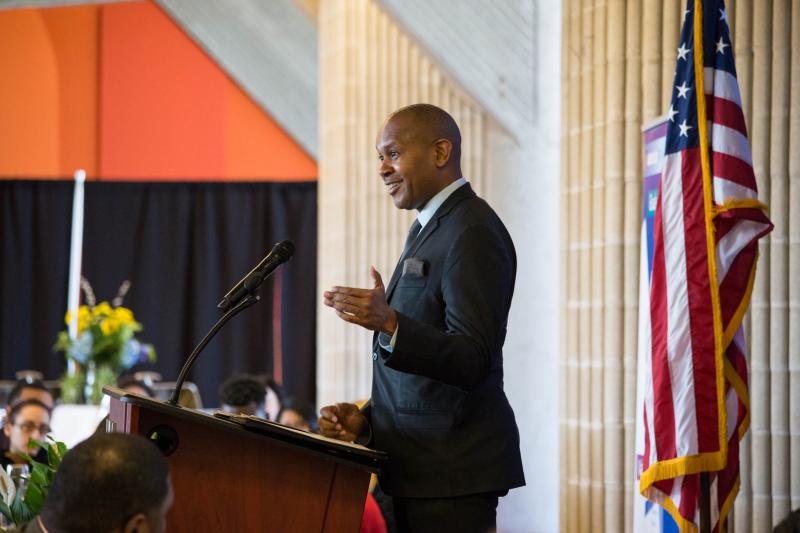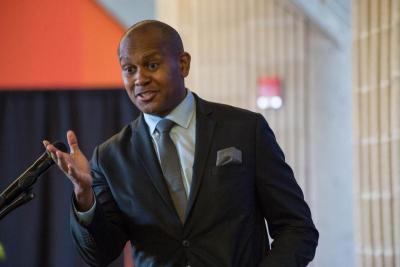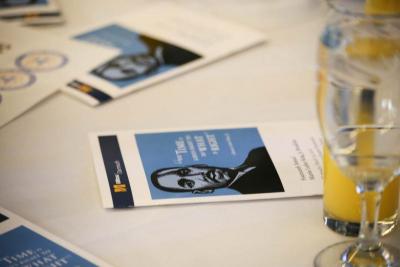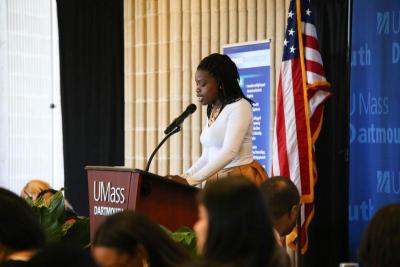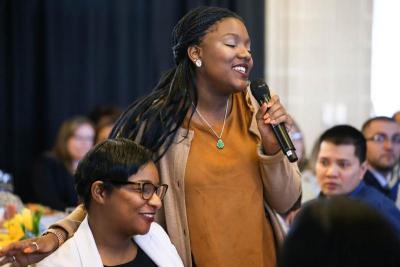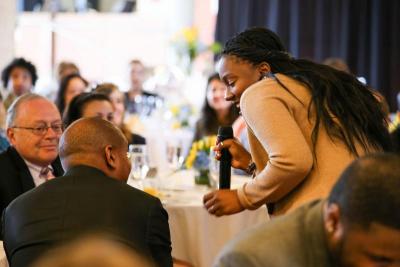Martin Luther King, Jr.'s legacy lives on through UMass celebration
Despite the progress of civil rights and social justice in the last 50 years, author and activist Kevin Powell noted at UMass Dartmouth's 14th annual Martin Luther King, Jr. breakfast: "racism is alive and well."
"I shouldn't have to think about race in 2016 the way I have to," Powell continued.
Rescheduled for Wednesday, March 30 after it was canceled due to inclement weather, UMass Dartmouth staff, faculty, students, and members of the community gathered at the Claire T. Carney Library to celebrate the life and legacy of Dr. King. The ceremony was peppered by musical performances as well as a reading of King’s “I Have a Dream” speech by UMass junior Kharlita Chambers-Walker.
Powell, the keynote speaker and president of BK Nation, spoke about King as being more than just the “I Have a Dream” figurehead, but as a man who came from the upper echelons of society to dedicate his life to the betterment of humanity despite their race, gender, creed, class, or ability.
“Sometimes you’re chosen to do great things and sometimes you are called,” Powell said. “Martin Luther King was called.”
Like King, Powell’s rhetoric revolved around progress stemming from love and peace and abolishing racism, sexism, homophobia, classism and ableism.
“You’re either going to be a bridge builder or a bridge destroyer,” he said. According to Powell, where a bridge builder strives for peace and connection, a bridge destroyer hinders progress through “enthusiastic ignorance.
To highlight the presence of racism in our culture today, Powell drew parallels between Emmet Till, a black boy who was lynched in 1955 at the age of 14 because he allegedly flirted with a white woman, and Tamir Rice, a 12 year old boy who in 2014 was shot and killed by police for playing with a BB gun.
He also paralleled the racial climate of the mid-20th century with the anti-LGBT laws being passed in North Carolina. Powell recalled Dr. King’s words, saying “injustice anywhere is a threat to justice everywhere.”
Powell brought to light the fact that though many people think they know and understand King, they often don’t know that his fight for peace didn’t end with eradicating racism. Towards the end of his life, he fought fervently for those living in poverty and became one of the first national leaders to condemn the Vietnam War, a war fought largely on the backs of poor young men, he said. Powell reminded his audience that King was a “very human human being.”
Raised in poverty by a single mother, Powell discussed the hyper-masculinity of his youth “and the reckless disregard for women and girls” that most men participate in. He went much of his youth without ever learning about significant women in history until he began actively educating himself about them. Powell credited his mother as the “first leader I ever met.”
“Men who see other do women wrong become just as guilty,” he said. “You have to have the courage to speak up against things that are unjust.”
His background and upbringing are the topic of his latest book, “The Education of Kevin Powell: A Boy’s Journey into Manhood,” which outlines his growth as an activist, feminist, and humanitarian.
Powell’s best advice to the audience, particularly the young students in attendance, was to read, study and travel to develop a “diversity of your mentality.”



